Introduction
Natural Climate Solutions, also called Nature-Based Solutions, are actions that reduce emissions and increase carbon storage in forests, farms, grasslands and wetlands, while providing a host of additional benefits for people and the environment.
Practices that could be included are actions like encouraging farming techniques that retain carbon in the soil, such as planting cover crops; conserving and replanting forests; conserving and restoring coastal wetlands; and reducing the loss of natural areas, planting trees, and providing parks in communities.
Not only do these efforts help address climate change – they can improve water quality, prevent natural disasters like wildfire, drought, and flooding, protect wildlife habitat, and provide opportunities for hiking and fishing. Best of all, these solutions are cost effective, and can often improve local economies.
Below you can explore how people in Tennessee are benefiting from implementing nature-based solutions in their community through a diverse set of resources from USN4C members and others, including blog articles, videos, comprehensive reports, and more.
Blog Articles
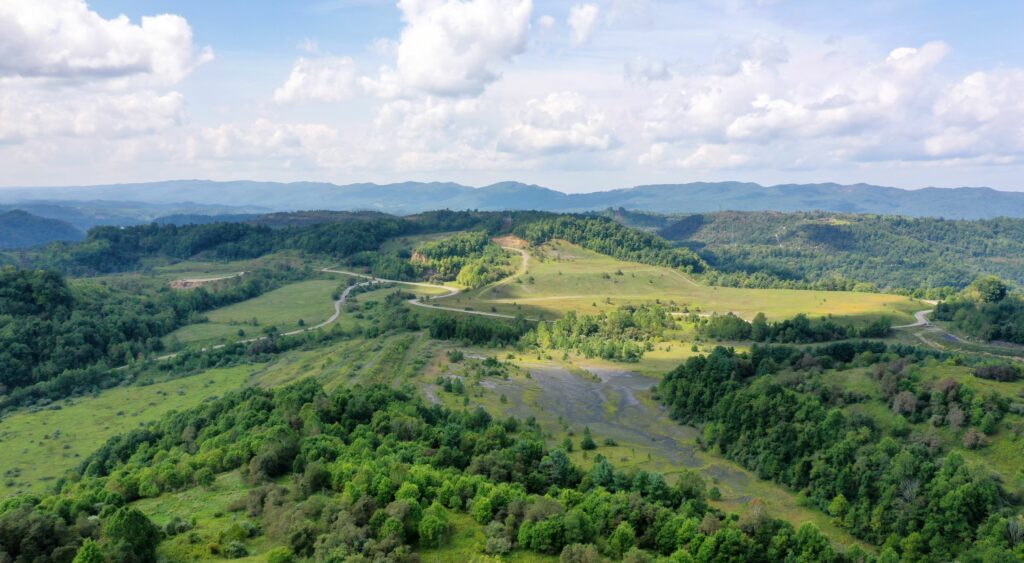
© The Nature Conservancy
The Nature Conservancy Article: Tennessee Climate Action – Our projects demonstrate the economic and ecological benefits of building climate resiliency.
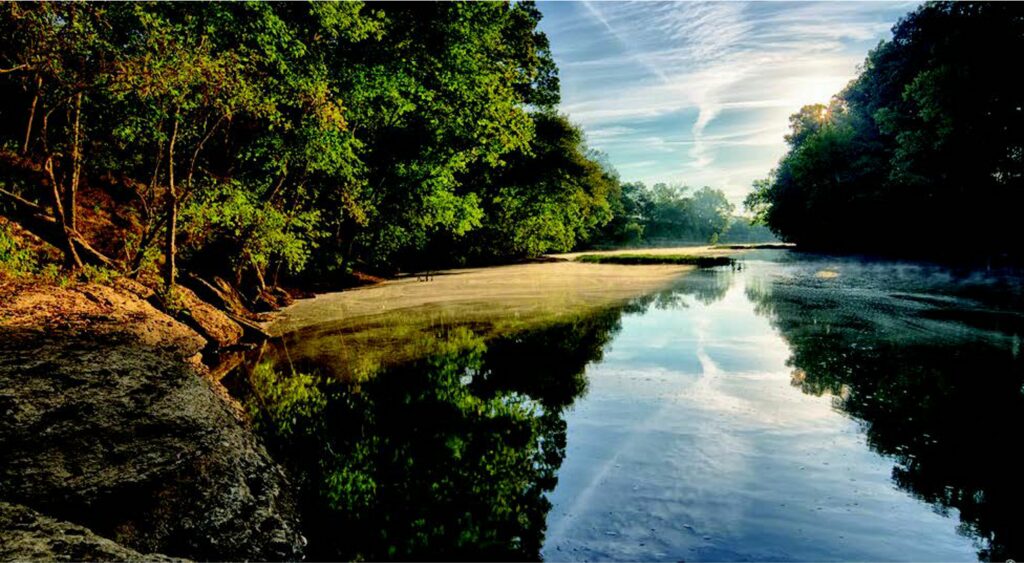
© Byron Jorjorian for TNC
The Nature Conservancy Article: Healthy Tennessee Waters – We are working to secure clean and abundant waters for all Tennesseans.

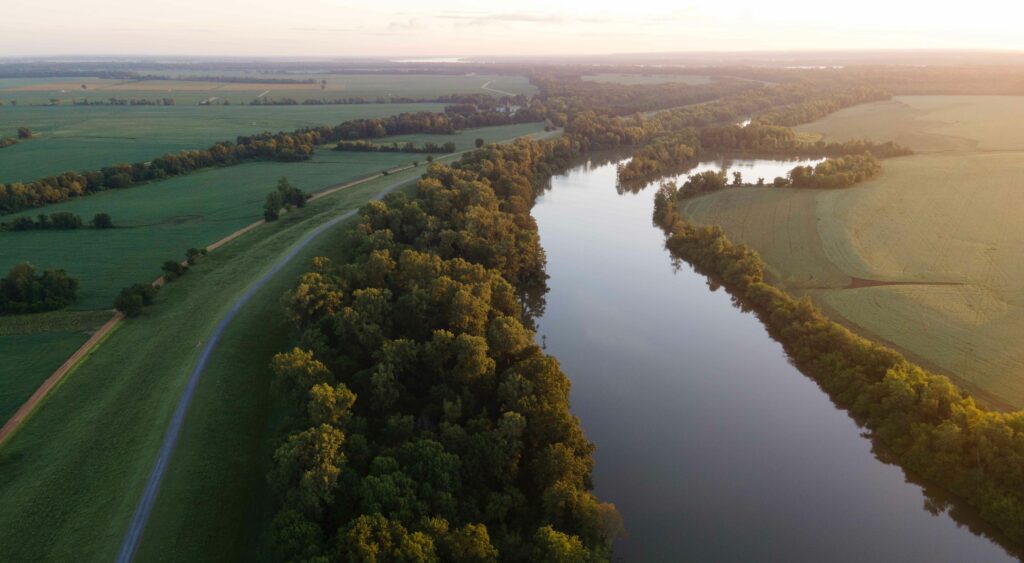
© Rory Doyle/TNC
The Nature Conservancy Article: Floodplains and Farms: In West Tennessee, working with the agriculture industry is key to restoring and reconnecting a landscape once dominated by vast floodplains and bottomland forests.
- SCIENCE: Environmental Defense Fund Article: New Research Could Help Resource Managers Improve the Health and Resilience of the Mississippi River Basin
- Open Space Institute Article: Grant Awarded to Chattanooga Housing Authority will Support Natural Climate Solutions and Environmental Education
Forests:
- National Wildlife Federation Article: A Tremendous Year of Growth for Trees for Wildlife
- American Forests Magazine Article: Tennesseeds: Why the Volunteer State is going all in on seed collection
- Theodore Roosevelt Conservation Partnership Nature-based Solutions Interactive Map: Tennessee – Cumberland River Hardwood Forest Wetland Reforestation
- The Nature Conservancy Article: The Future Forest: The Appalachians face multiple threats. Scientists are working to boost their adaptability.
- The Nature Conservancy Article: Cumberland Forest Community Fund: Supporting nature-based economic and community development in the Appalachian regions of Southwest Virginia, Tennessee and Kentucky.
- USDA Forest Service Fact Sheet: Forest Legacy 2024 Funded Projects
- Department of Interior Press Release: Assistant Secretary Estenoz Highlights New Investments for Urban Parks, Outdoor Access in Arizona, Tennessee
- National Wildlife Federation Article: Nature-Based Solutions Needed to Combat Appalachia’s Growing Flood Risks
- SCIENCE: Geoplatform.Gov (U.S. Geological Survey): Modeling and Mapping Burn Severity of Prescribed and Wildfires Across the Southeastern United States (2000-2022)
- U.S. Nature4Climate/Kentucky Natural Lands Trust Article: Large Landscape Conservation: Pine Mountain Wildlands Corridor
Agriculture:
- SCIENCE: Soil Health Institute Article: Maximizing Weed Suppression with Cover Crops in Cotton Production
- Soil Health Institute Fact Sheet: Using Cover Crops as a Weed Suppression Tool in Cotton Production
- Soil Health Institute Fact Sheet: Cover Crop Species Comparison for Weed Suppression in Cotton Production
- U.S. Nature4Climate/Environmental Defense Fund Article: Cargill and Soil Health Institute find farmer experience with soil health pays off. Here’s how.
Wetlands:
- Pew Charitable Trusts Article: Change in Federal Protections for Wetlands Poses Resilience Challenge for States
Reports
Videos & Podcasts
Explore More!
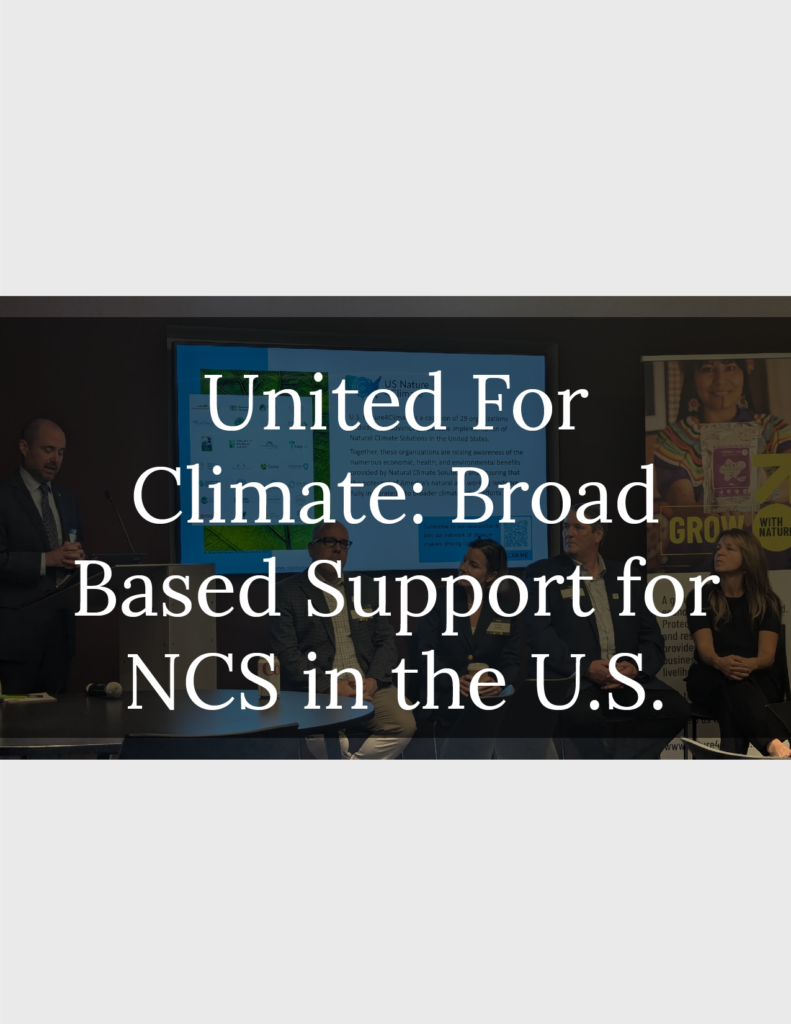
A new national survey conducted by U.S. Nature4Climate shows that voters across party lines support natural climate solutions more than ever, suggesting fertile ground for bi-partisan cooperation and consensus-building, opening up new avenues for climate action. Learn more.
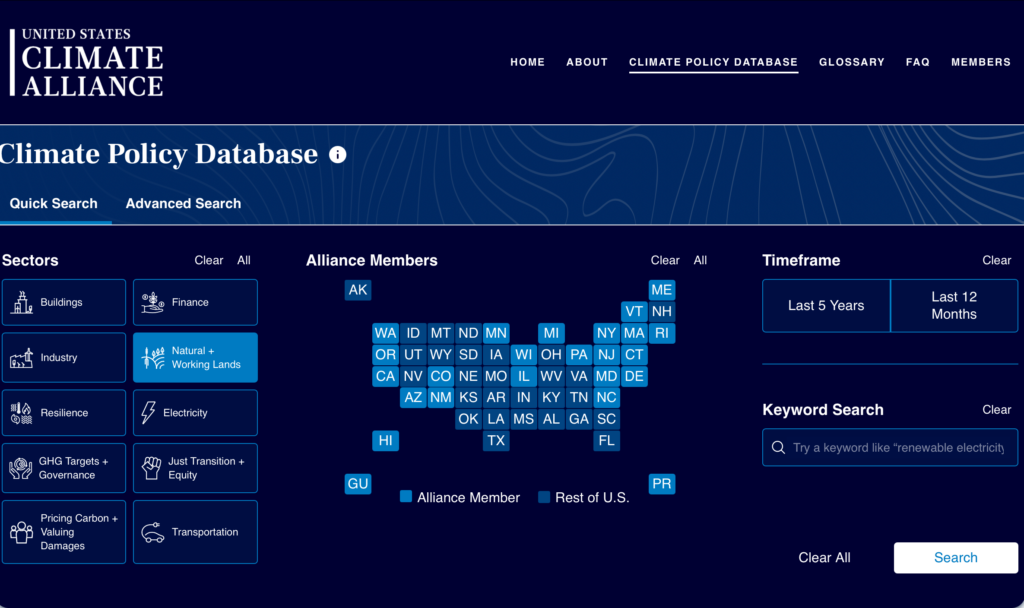
Explore U.S. Climate Alliance‘s Climate Policy Database.
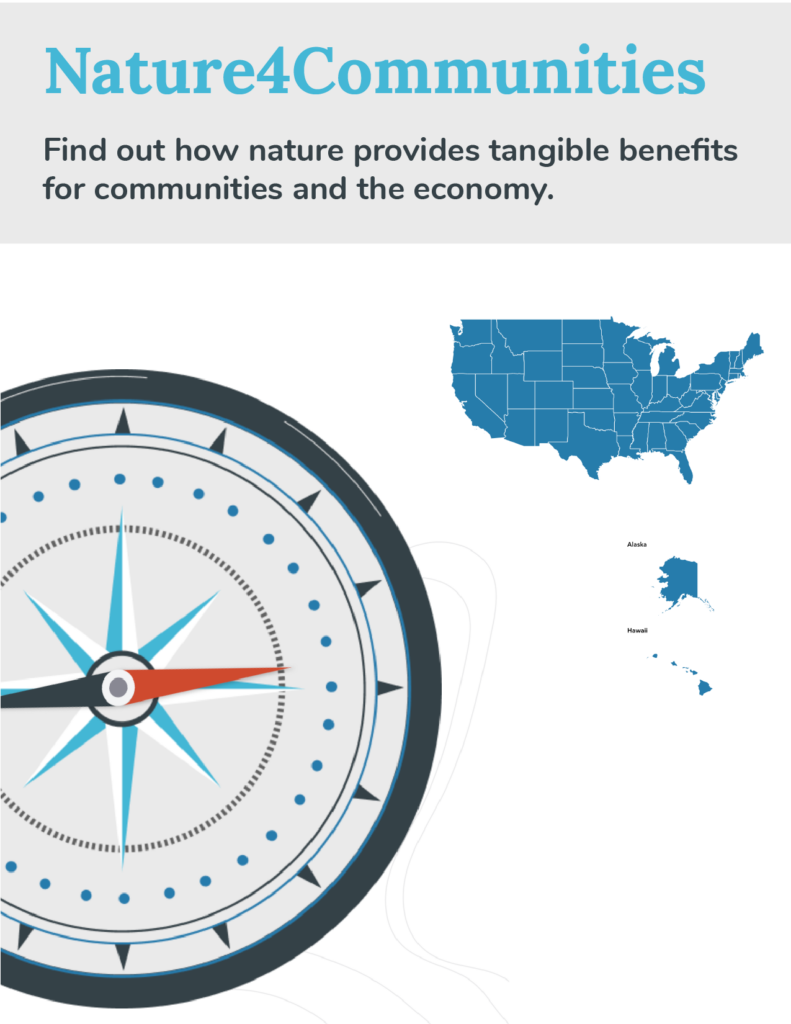
Explore Nature4Communities, a resource that shows you how nature-based solutions are critical for your community’s well-being and become a better advocate for their implementation.
